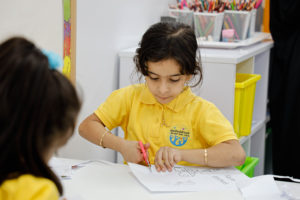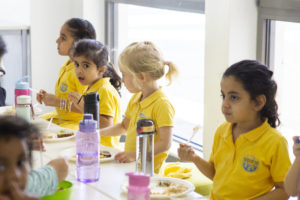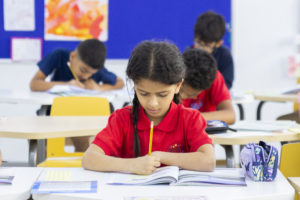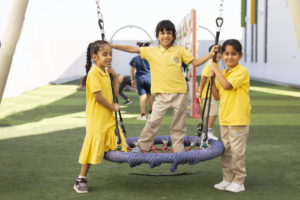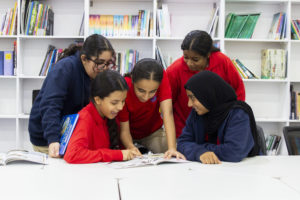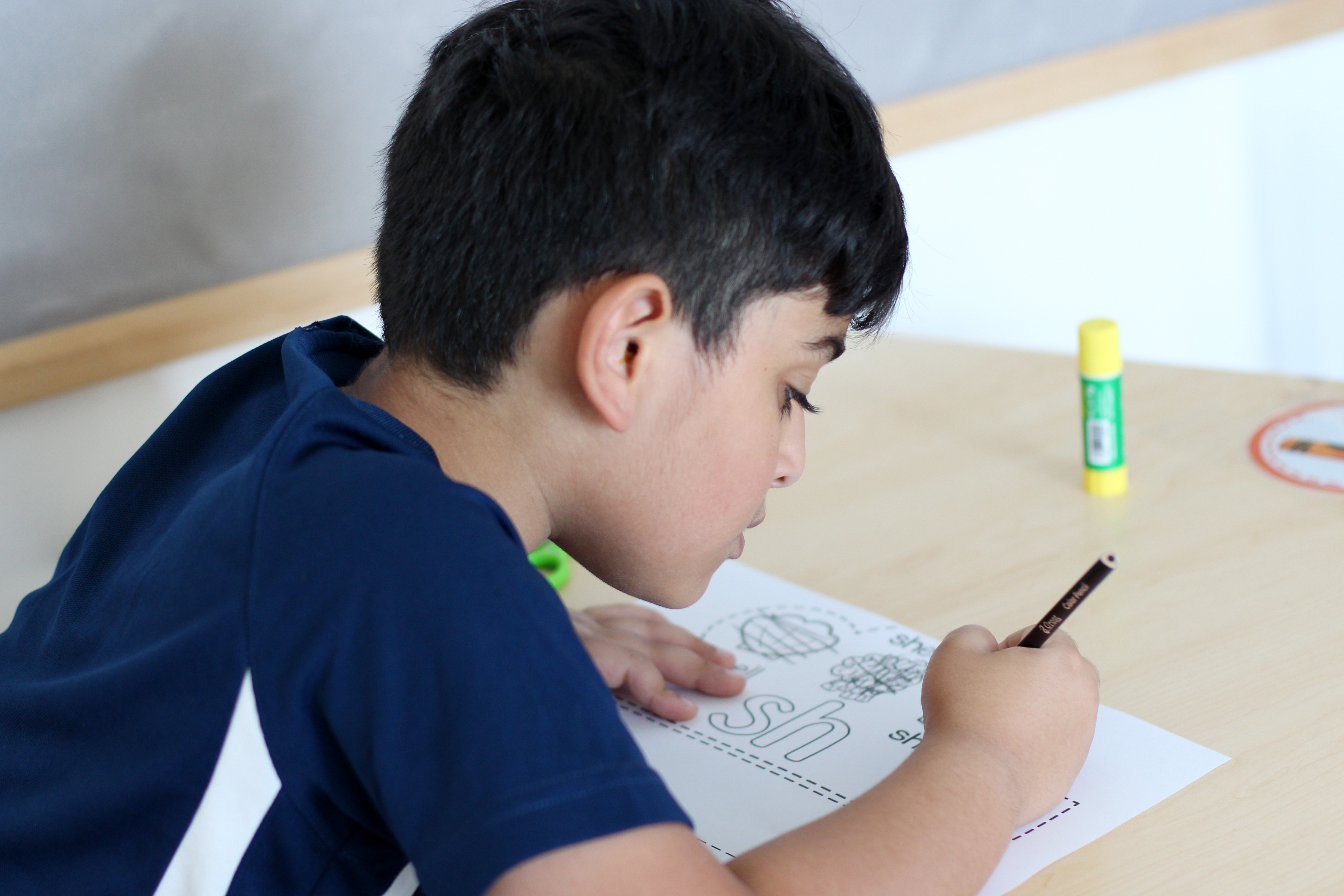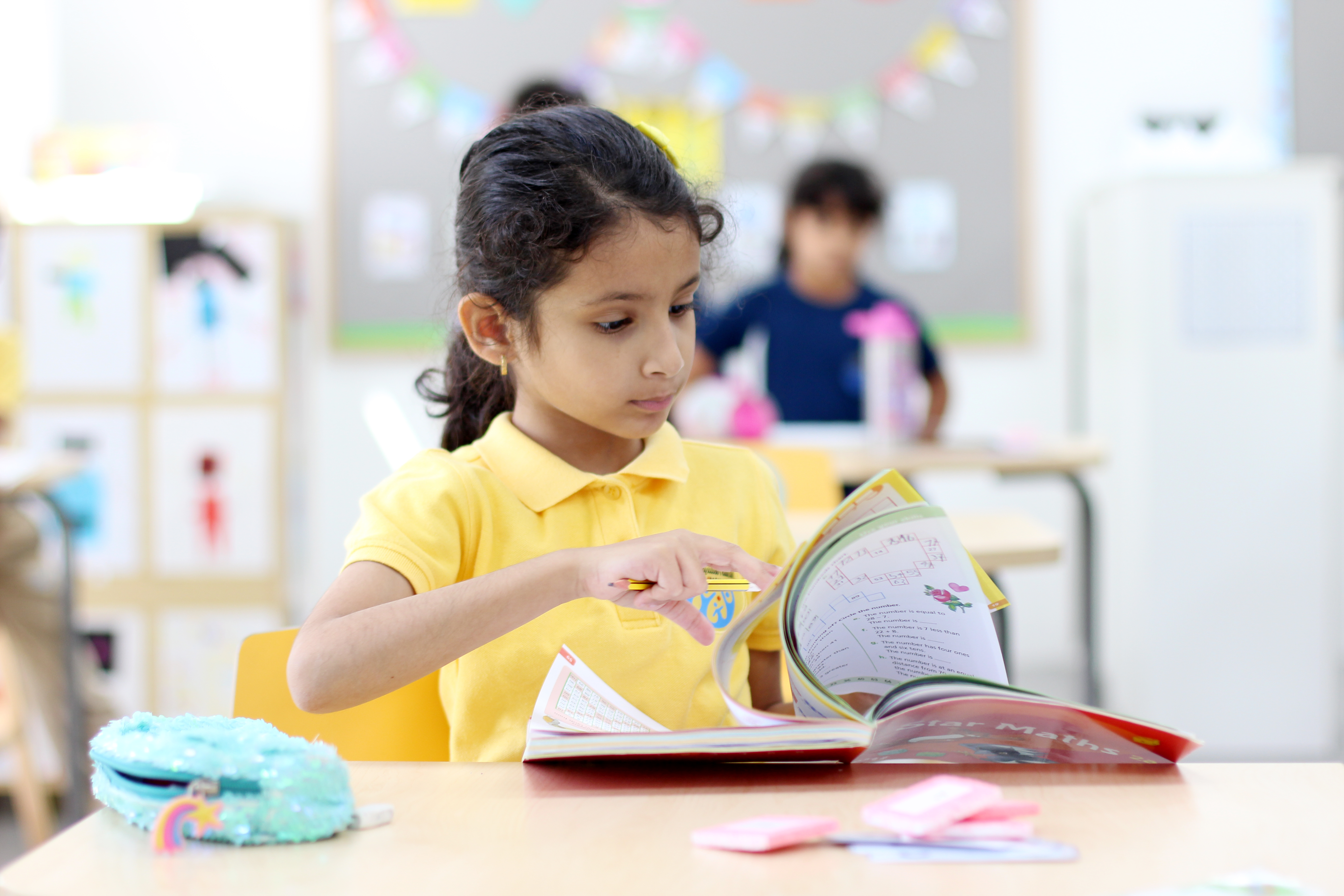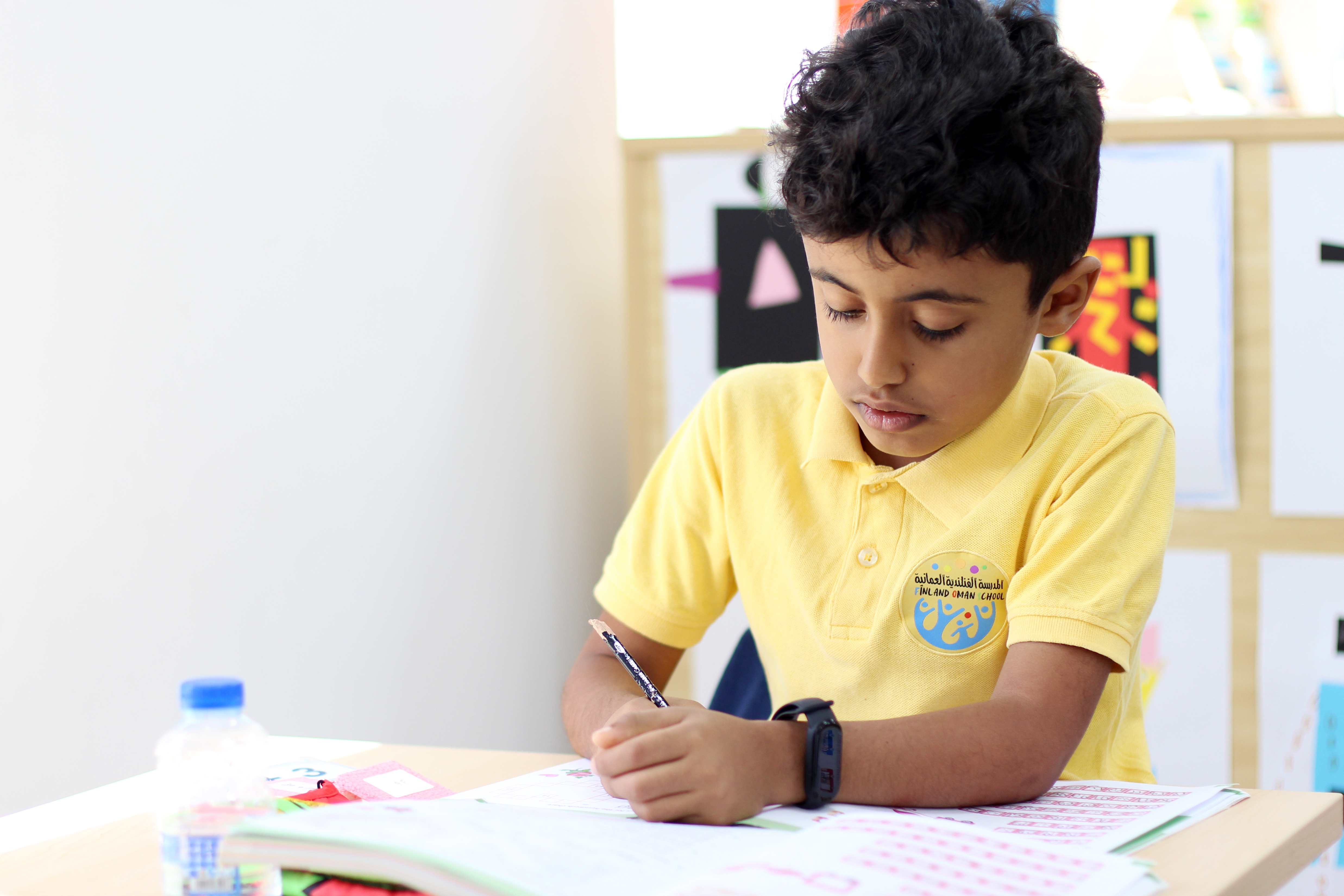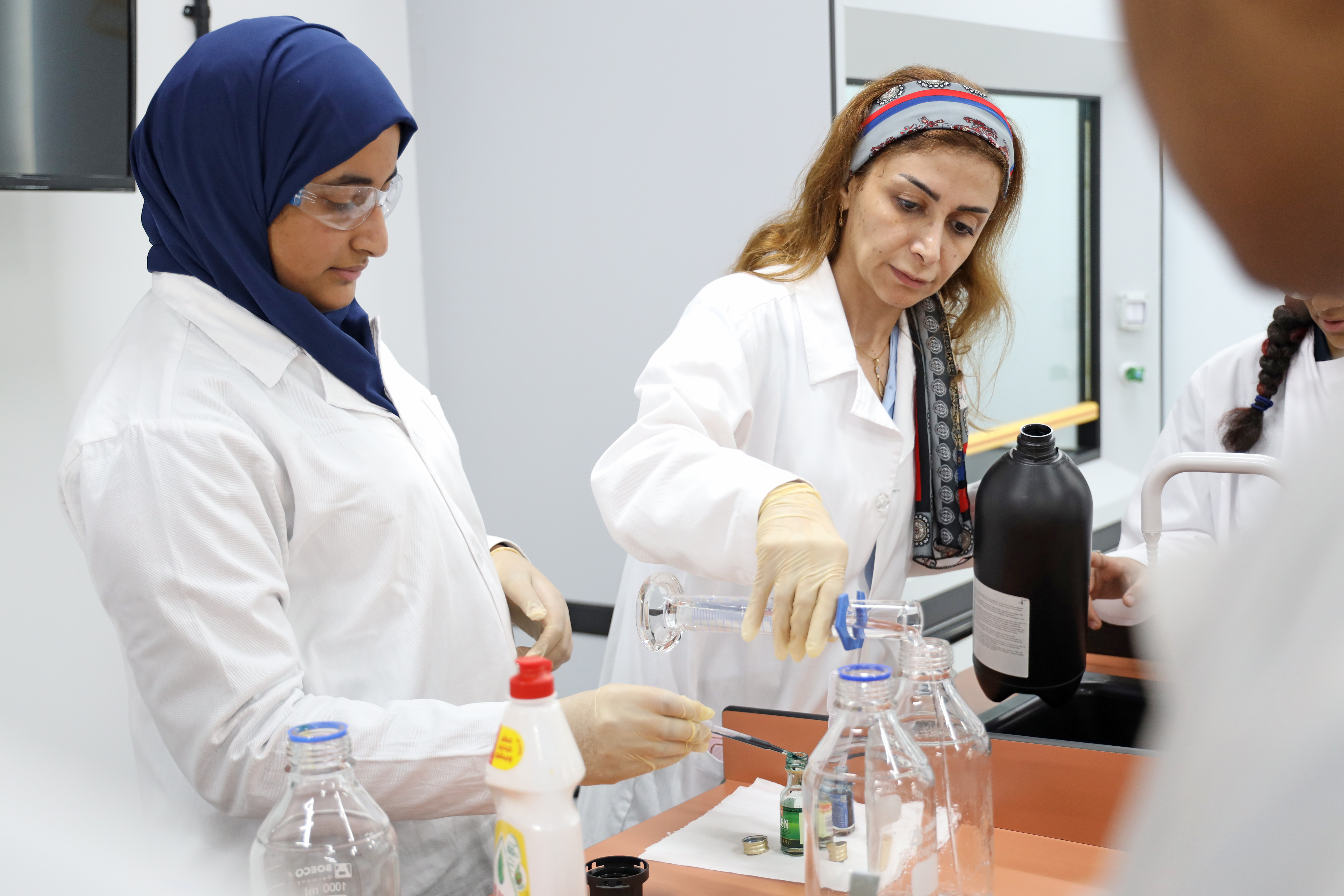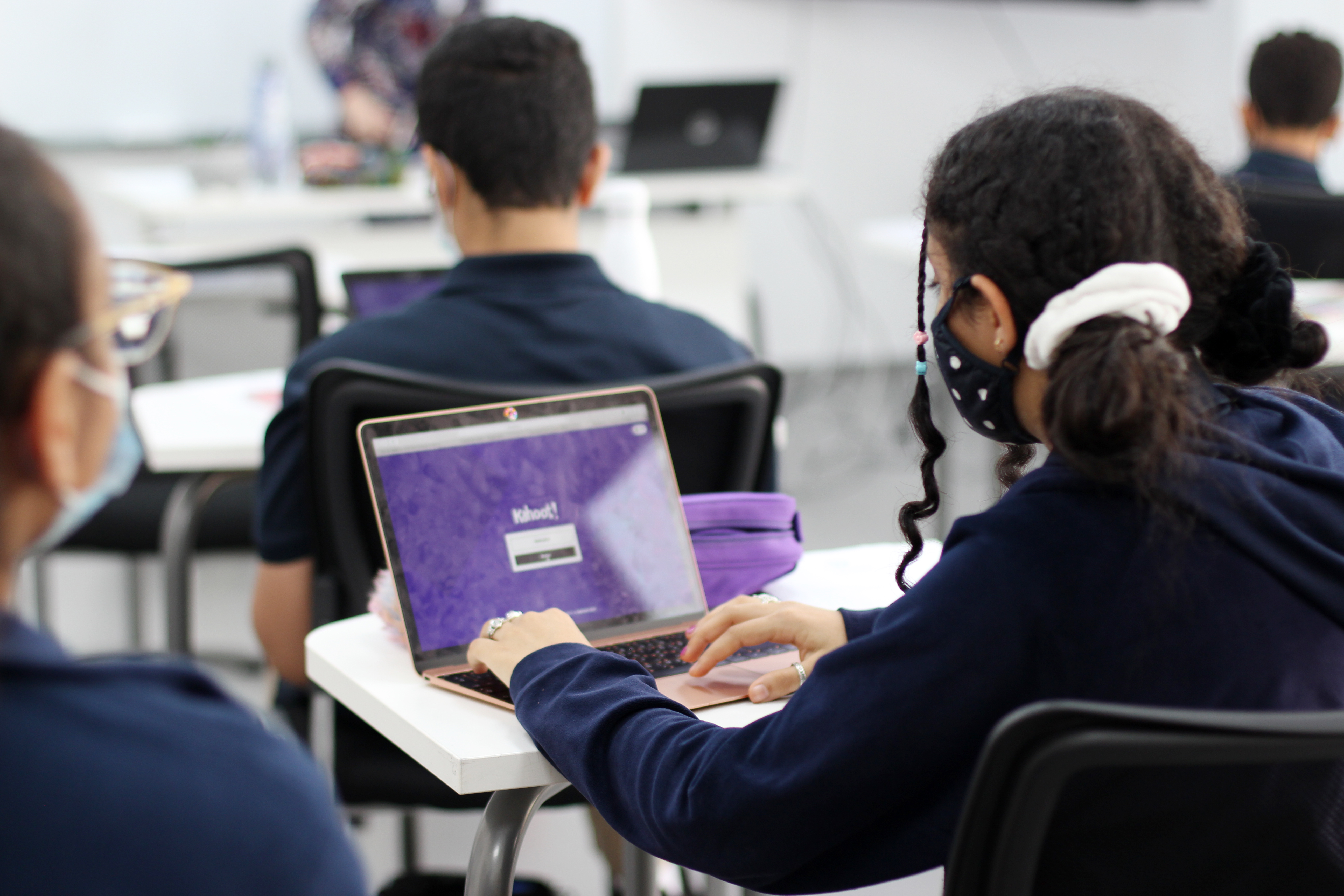Overview
Learning is meant to be fun, active, and engaging. The Joy of learning is key.
Learning happens everywhere. It takes place inside and outside of the classroom and through practical activities and programs. It is a continuous, cyclical process where know-how is acquired and applied each day in different areas of life.
A phenomenon-based learning and cross-curricular approach are characteristic of Finnish education, and at F.O.S. In phenomenon-based learning, holistic real-world phenomena provide the starting point for learning. The phenomena are studied as complete entities, in their real context, and the information and skills related to them are studied by crossing the boundaries between different subjects.
The STEAM framework − meaning Science, Technology, Engineering, Arts and Mathematics – is used to facilitate this cross-curricular approach and to combine subjects and teachers. At Finland Oman School, students are prepared for the world and for their future.
Art, Physical Education and Music follow the Finnish National Core Curriculum in terms of subject content.
The curriculum for ICT and Life Skills draws on features from a Bilingual and Finnish Core Curriculum, as the subjects are integrated in the teaching and learning of other subjects.
Assessment is a natural part of daily schoolwork. Focus is not on high-stakes exams but rather the use of continuous assessment and various assessment methods allowing students different ways to show their learning progress. Lifelong learning is emphasised.
Focus on student wellbeing. A healthy breakfast and lunch, as well as active breaks and time for play, are included on the school days. Each student has a class- or homeroom teacher who is in regular contact with parents.
Every student has a right to educational support. Special Needs Education is generally provided in conjunction with mainstream education.
SKILLS are more important than CONTENT: the Finnish education system is not about rote-learning, but about equipping students with skills that are needed in life. The common objectives of the subjects are crystallized as transversal competence areas:
.
Well-being and self-care
Thinking and learning-to-learn skills
Interaction skills, multidisciplinary and creative competences
Social competence, ethical and environmental competences
Global and cultural competences
Cultural competence
Multiliteracy
Information and Communication Technology
Work-life skills and entrepreneurship
Participation in planning and evaluation of own learning; influencing and building sustainable future
Early Years ( EY1 and EY2)
Early Years EY1 and EY2 The transformative nature of the PYP lies in its commitment to student learning in a transdisciplinary context, embedded in the curriculum framework and connected across key elements of the programme. It is a fundamental PYP belief that for early and primary years learners, continuous integration and connection of prior and new knowledge and experiences is the most meaningful way to broaden their understanding about the world. When a curriculum approach goes across, between and beyond subjects, and emphasizes participatory and integrated learning, it honours the learners’ curiosity, questions and voice, for whom the curriculum is intended (Beane 1995). Transdisciplinary learning in the PYP refers to learning that is not confined within the boundaries of traditional subjects but is supported and enriched by them.
Early Years (EY1 and EY2) follow the Finnish National core curriculum for ECEC (Early Childhood Education and Care), within the IB framework. The main aim of ECEC is to support and evaluate children’s individual potential by providing goaloriented and suitably challenging activities through the elements of IB teaching and learning. These pedagogical activities combine different areas of learning and promote children’s interests and their enthusiasm for exploring and experimenting. At Finland Oman School, early childhood education is built on a holistic view of a child, and fosters the social, emotional, physical, and personal development of the child. It draws on a wide range of pedagogic knowledge, transdisciplinary information and research, and expertise in pedagogic methodology. The activities are implemented through interaction in a stimulating learning environment, where the child’s spontaneous play is of key importance, and learning is hands-on and experiential. An individual pedagogical plan is drawn up for each child in cooperation with the parents, in order to focus on each child’s strengths and develop their individual potential.
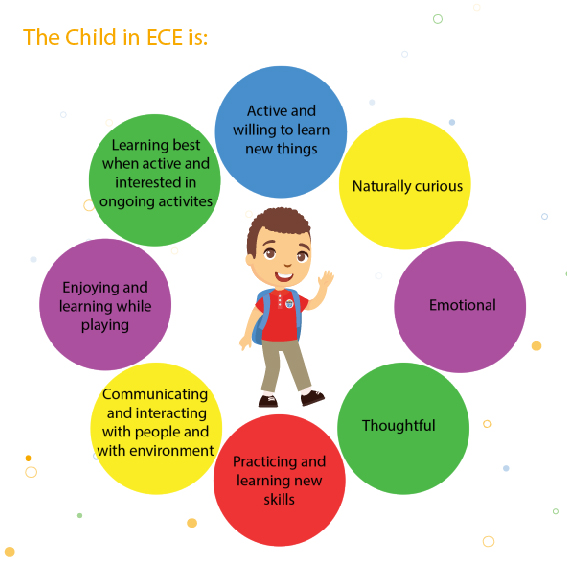
Primary Education (Grades 1–6)
Our primary grades 1 to 6 follow the homeroom teacher model, where students are taught by the same teacher across most subject areas and are their pastoral care-giver.
The core focus of education at Finland Oman School is the cross-curricular transdisciplinary approach and transversal competencies. Students develop subject-specific skills while developing the skills required for learning, such as communication skills, thinking skills, social skills, research skills and self-management skills. The core subjects such as Languages, Science, Social Studies and Mathematics are integrated with Physical Education, Arts and Crafts, Music and ICT.
Our goal is to provide our young learners with a solid foundation in the skills and knowledge they need to succeed in secondary school while promoting lifelong learning.
The PYP Transdisciplinary Themes:
- Who we are?
- Where we are in place and time
- How we express ourselves
- How the world works
- How we organize ourselves
- Sharing the planet
These themes are worth exploring regardless of where PYP students are in the world and with which ethnic or cultural group they identify. Framing the programme of inquiry, these globally and socially driven themes provide a starting point from which students can examine issues and opportunities as they are being experienced in the real world. Taken together, these themes provide students with authentic learning experiences that are not confined to the boundaries of traditional subjects because real-world problems have no boundaries.
Secondary Education (Grades 7–12)
Our secondary grades 7 to 12 follow the Homeroom and Subject Teacher model within the framework of the IB MYP.
Grades 7 and 8 subjects include:
English, Mathematics, Science, Individuals and Societies, Physical and Health Education, Design and Technology, Islamic Studies, Arabic
Grades 9 to 12 subjects include:
English, Mathematics, Biology, Chemistry, Physics, Islamic Studies, Social Studies, Arabic, Arabic for Beginners, Ethics, Global Studies
Our goal is to provide young people with a strong foundation in Upper Secondary while fostering lifelong learning. The curriculum is taught in English, with Arabic used for specific subjects.
The IB MYP promotes international-mindedness. Learning environments value the world as the broadest context for education, preparing students for life in highly globalized 21st-century societies.
The MYP identifies six global contexts for learning and teaching, expanding on the PYP transdisciplinary themes.
MYP Global Contexts:
- Identities and Relationships
- Orientation in Space and Time
- Personal and Cultural Expressions
- Scientific and Technical Innovations
- Globalization and Sustainability
- Fairness and Development


